5. Being There (1979) – Hal Ashby
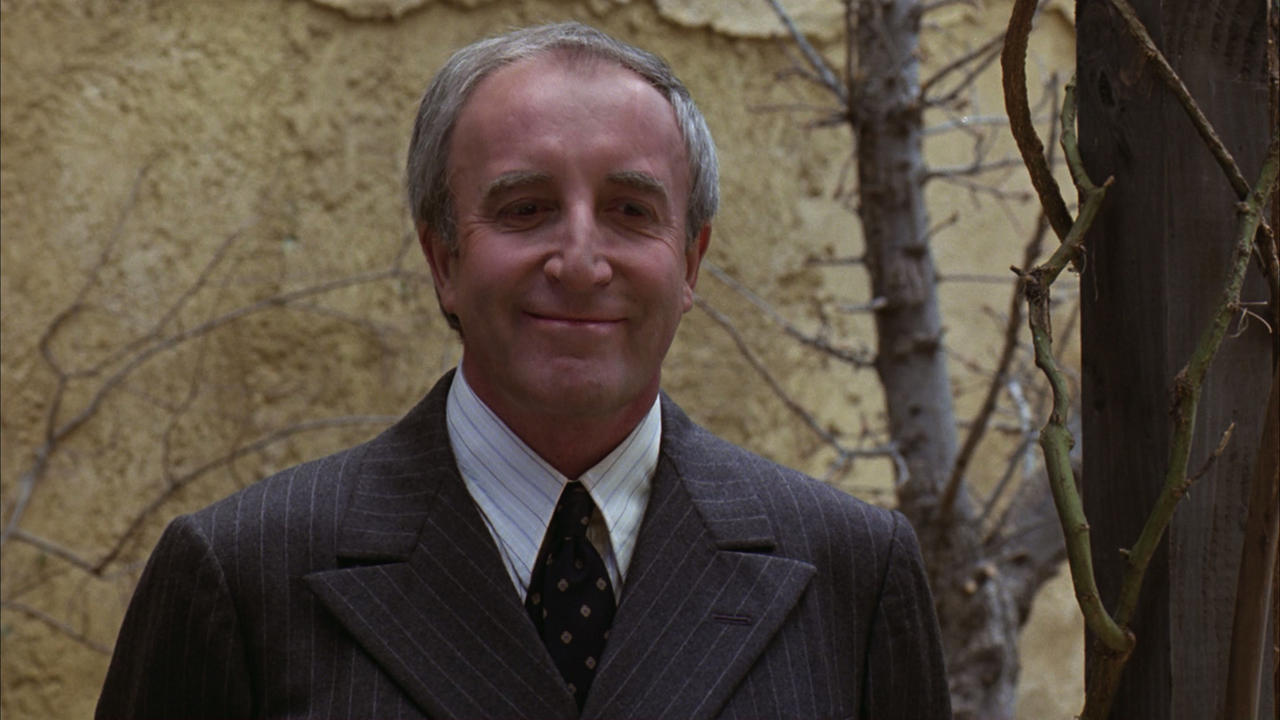
Few names are as synonymous with comedy as that of the great Peter Sellers, and it’s frankly difficult to imagine the cinematic humor landscape without his unique stamp. But for most of his life, his skills as a dramatic actor were kept under wraps; when Sellers set his sights on the lead role in Hal Ashby’s Being There, that reputation was about to change forever. Sellers delivers a pitch-perfect performance as “Chance the Gardener” that keeps us laughing and then leaves us crying.
Chance, the seemingly simple-minded protagonist of Being There, embodies the mantra “live in the moment”. We assume that his living in the moment is a product of his simplicity rather than intent, but we’re never told for sure, and the film shows us that it doesn’t matter. Chance is a character who knows nothing about life other than what he has seen on television, and he’s the perfect canvas upon which others project their own mindsets and opinions.
When he enters the real world for the first time as a middle-aged man, his social ineptness and simple behavior draw a wide range of reactions. Some are hilarious and some are heartbreaking, but Being There promises a complete emotional journey for its audience.
4. Stroszek (1977) – Werner Herzog
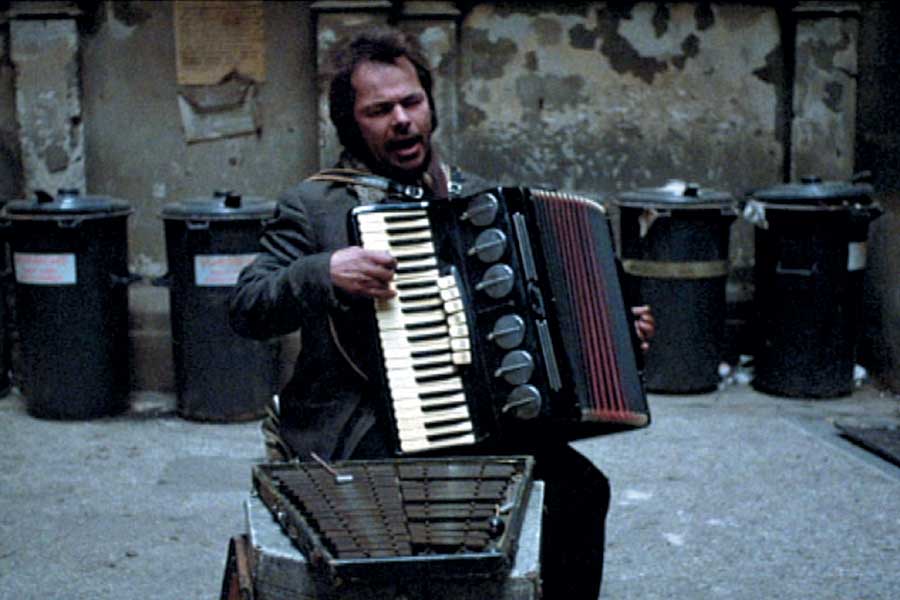
German filmmaker Werner Herzog takes his cameras and creative talents to America in this unique and original film. The story follows the fortunes of Bruno Stroszek, a street performer whose recent trouble with alcohol has landed him in trouble with the Berlin police.
Upon his release, Bruno decides to make the move to America along with a local prostitute trying to escape her abusive employers, and a neighbor whose relative has invited them all to live on his farm in Wisconsin.
What follows is an unsentimental examination of the American Dream, which the German trio finds to be slightly less blissful than U.S. postcards had indicated. Unfortunately, these eccentric and hapless characters do not gain either wisdom or common sense simply by virtue of their move, and their new country does not magically envelope them in wealth and success.
Herzog uses mostly locals and non-actors to populate this film, and the results are both comical and deeply affecting. The unforgettable and iconic final scenes of Stroszek externalize the private chaos into which Bruno has descended, largely due to his misplaced expectations. It’s a film that is the definition of unique, and it’s an emotional rollercoaster of a classic.
3. Sullivan’s Travels (1941) – Preston Sturges
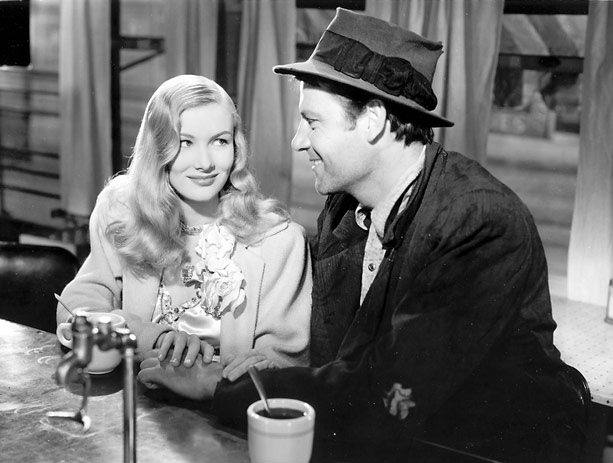
Few films have shown such skill at seamlessly transitioning between slapstick style humor and profoundly touching moments of sadness as this one does. Sullivan’s Travels tells the story of a movie director whose desire to make a serious, thoughtful film leads him to the realization that he knows little of human suffering. In order to make an authentic movie about hardship, he decides to adopt the clothes and lifestyle of a hobo.
Of course this setup sounds like an ideal comedic situation, and it works brilliantly as such. But Sullivan’s Travels is sprinkled with some touching moments of realism and tragedy that may turn your tears of laughter to tears of weeping.
Though the initial motivations of the director within this film include financial success, the high society citizen learns more about suffering during his travels in disguise than he ever dreamt he might. When he finds himself in serious trouble with the law, his connection to the downtrodden people around him becomes immediately profound. With the help of the beautiful Veronica Lake, our hero thoroughly learns how to walk a mile in another’s shoes before resuming his own.
2. The Apartment (1960) – Billy Wilder
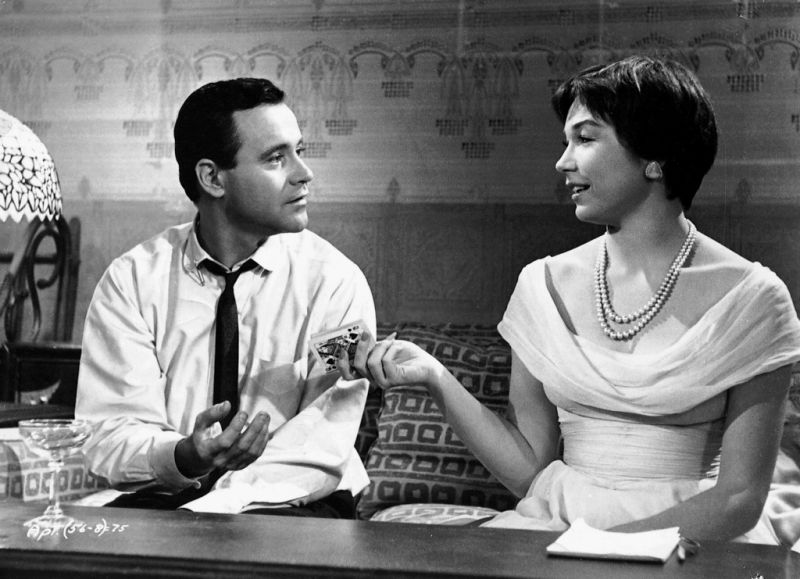
Billy Wilder made some great comedies and some great dramas, but he never created a better blend of the two genres than The Apartment. In Jack Lemmon, Wilder found the perfect front man for a film like this.
As hilarious as Lemmon could be, he never lost his dignity in the process, and here he also found the chance to showcase his underrated dramatic acting skills. Shirley MacLaine, in one of her earliest roles, never fails to match the director and lead actor with the delightful versatility of her craft.
The story centers around an unmarried office worker whose superiors at work discover that they can manipulate him to gain use of his apartment for their secret romantic trysts. Because he wants to succeed in his career the poor guy can’t muster the courage to say no, and often finds himself locked out of his own apartment in the cold. But when one of his bosses sets his sights on the unfortunate employee’s favorite elevator operator, things take a more complicated and tragic turn. The Apartment pulls all of our emotional strings with skill and keeps us coming back for more.
1. Life is Beautiful (1997) – Roberto Benigni
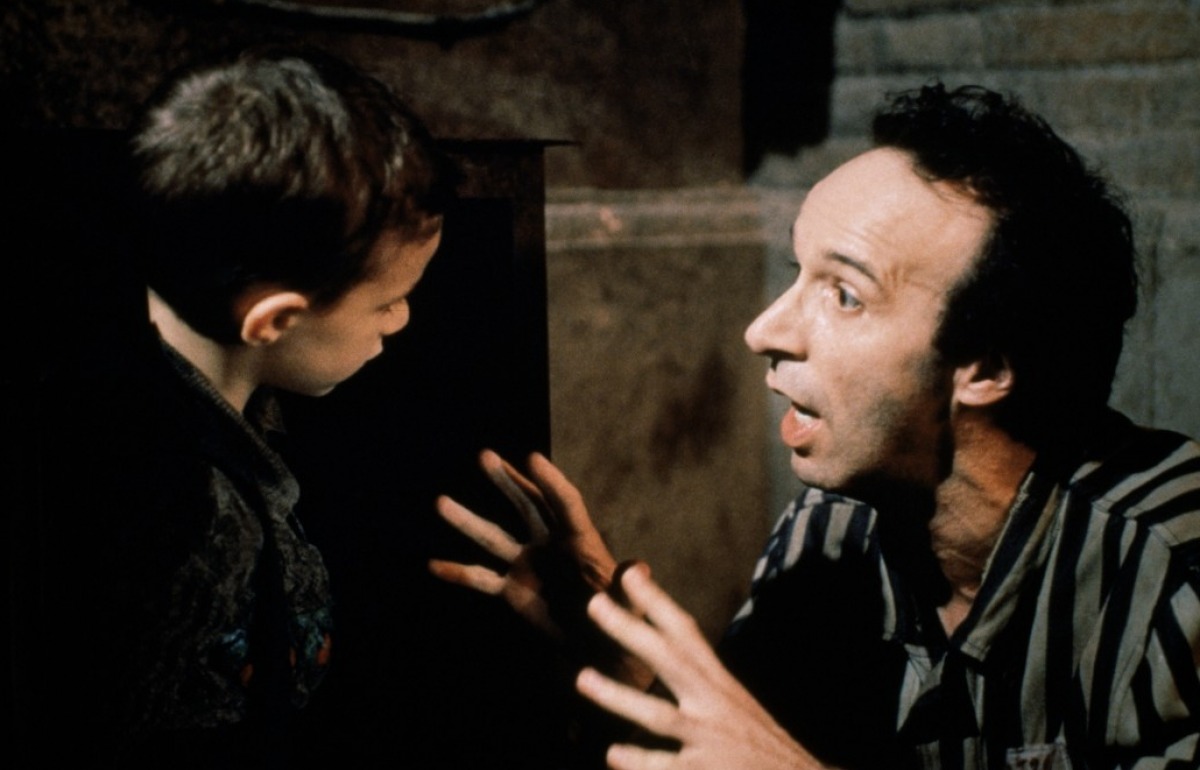
Has any film ever blended humor and tragedy as effectively as Life is Beautiful? Its title and setting alone speak volumes about the dual nature of the film. The setting, as many know, is a Nazi concentration camp, and the title speaks to the prevailing worldview of its characters who suffer under impossibly difficult circumstances. Roberto Benigni both directs and stars in this charmingly heartbreaking movie which is a requisite stop along every film lover’s pilgrimage.
Benigni plays Guido, who with his son is sent to a concentration camp for as long as they can last in it. In an effort to protect his young son from both danger and harsh reality, Guido convinces him that the camp is a part of a huge game that they must play to win. For every time he keeps quiet or obeys orders, the boy gains additional points in the game.
The efforts of this loving father to preserve his son’s innocence through these exhausting measures is what triggers our emotional swings. From laughs at the delightfully elaborate games that he invents to heartbreak at the true nature of their circumstances, Life is Beautiful teaches us perfectly that a film can multitask when leaving its emotional imprint on an audience.